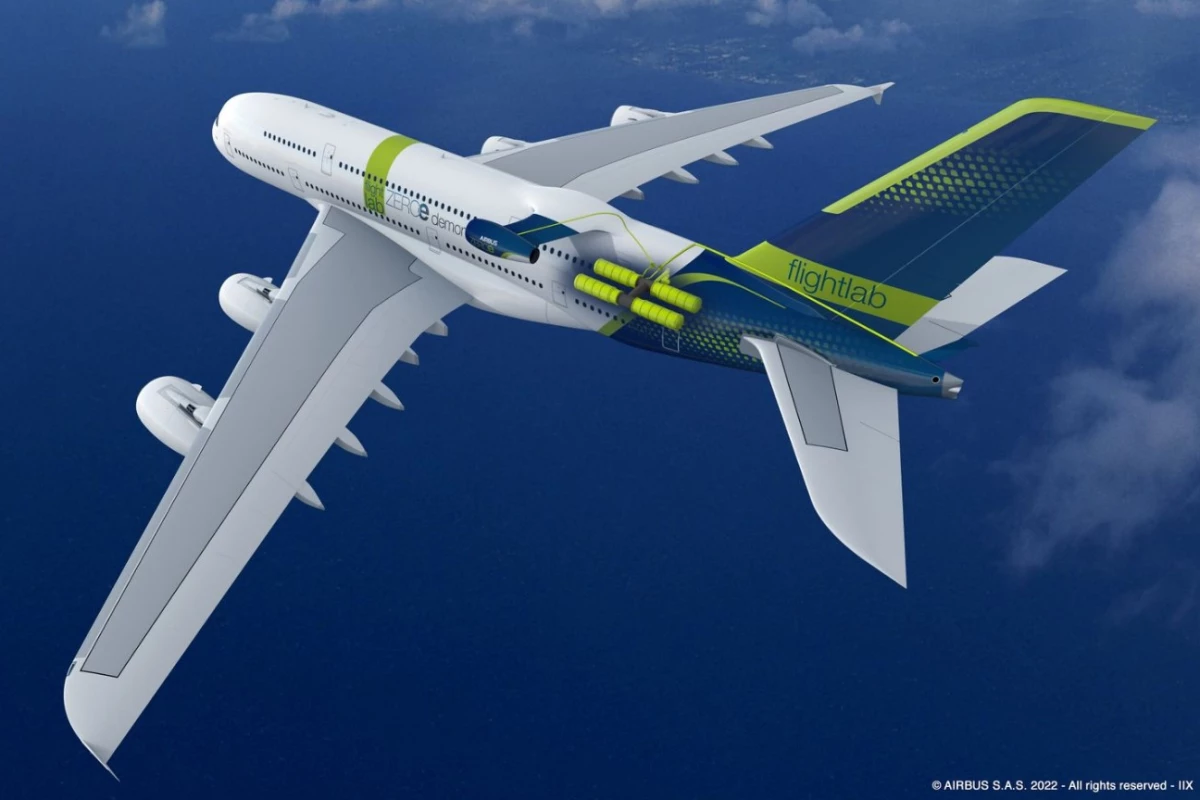Airbus is looking towards a greener aviation future, revealing major projects to build hydrogen jet airliners with not only a complete hydrogen-fueled propulsion system, but also a hydrogen Auxiliary Power Unit (APU) to generate electricity onboard.
There's often talk about a new hydrogen economy, but there's much more to this than simply swapping out fossil fuels for hydrogen. The two are very different things and require much more than just an engine that's been modified to burn hydrogen. It requires complete systems and engineering at a very basic level.
Working with ArianeGroup, an Airbus–Safran joint venture, Airbus has completed testing a complete system for feeding hydrogen to an aeronautical gas turbine engine. The HyPERION project, named after a French acronym for hydrogen for environmentally responsible aviation propulsion, began in December 2020 and is aimed at producing practical hydrogen commercial airliners by 2035. Its purpose is to both test technologies to make sure they work with a high degree of security and to identify areas where more work is needed.
In this case, the idea is to combine Airbus's expertise in aircraft construction with ArianeGroup's liquid hydrogen systems developed for the Ariane family of space rockets. In the new system, the hydrogen is stored as a supercooled liquid in cryogenic tanks. This is dispensed into the fuel system, which preheats the liquid, turning it back into gas that is delivered to the engines at the optimal temperature and pressure.
ArianeGroup's Vernon test facility carried out tests with the French aerospace lab ONERA, looking at compatible metals and the hydrogen conditioning system in a proof-of-concept test on May 12, 2023 that used an electric pump, gas generator, and heat exchangers originally developed for the Ariane rockets.

In another project, Airbus UpNext is working on a demonstrator program to replace the 'hidden' engine on an airliner.
If you ask most people how many engines there are on a passenger aircraft, they'll probably count the ones hanging off the wings, but there's one more jet engine tucked away in the tail of the plane. This is the APU, which is a jet turbine engine that is hooked to a generator to supply the aircraft onboard lighting, galley, and cockpit avionics with electricity and also pressurizes the cabin while supplying heating and cooling.
What Airbus wants to do is to build a technology demonstrator called HyPower by 2025 that will replace the APU on an Airbus A330 with a hydrogen fuel cell that will reduce the emissions and noise levels of a conventional unit.
"These tests will mark a new step in our decarbonization journey and ZEROe program through an ambitious flight demonstration that will take to the air by end 2025," said Michael Augello, CEO of Airbus UpNext. "We want to demonstrate the operability and integration of the system, including refueling the aircraft with hydrogen. We will demonstrate this system in realistic conditions, climbing to 25,000 ft (7,620 m) and flying for one hour with 10 kg (22 lb) of gaseous hydrogen on board. However, we cannot do this alone and our cooperation with the Spanish Government and external partners will be key enablers of these series of tests."
Source: Airbus





